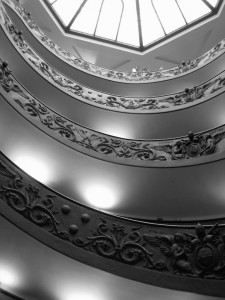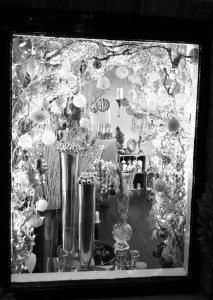Overview
Surely charities don’t have to pay taxes?
This is a common myth, and while charities do enjoy some VAT reliefs, they are also liable for a number of VAT charges.
Charities have a very hard time of it in terms of VAT, since not only do they have to contend with complex legislation and accounting (which other businesses, no matter how large or complicated do not) but VAT represents a real and significant cost.
By their very nature, charities carry out “non-business” activities which means that VAT is not recoverable on the expenses of carrying out these activities. Additionally, many charities are involved in exempt supplies, eg; fundraising events, property letting, and certain welfare and educational services, which also means a restriction on the ability to recover VAT on attributable costs.
These two elements are distinct and require separate calculations which are often very convoluted. The result of this is that charities bear an unfair burden of VAT, especially so since the sector carries out important work in respect of; health and welfare, poverty, education and housing etc. Although there are some specific reliefs available to charities, these are very limited and do not, by any means, compensate for the overall VAT cost charities bear.
Another issue is legal uncertainty over what constitutes “business income” for charities, especially the VAT status of grants. It’s worth bearing in mind here the helpful comment in the EC case of Tolsma translated as: “…the question is whether services carried on by [a person] were carried on for the payment or simply with the payment”.
Many charities depend on donations which, due to the economic climate have fallen in value at a time when there is a greater demand on charities from struggling individuals and organisations.
What can be done?
- Ensure any applicable reliefs are taken advantage of.
- If significant expenditure is planned, ensure that professional advice is sought to mitigate any tax loss.
- Review the VAT position to ensure that the most appropriate partial exemption methods and non-business apportionment is in place.
- Review any land and property transactions. These are high value and some reliefs are available. Additionally it is possible to carry out planning to improve the VAT position of a property owning charity.
- Review VAT procedures to ensure that VAT is declared correctly. Penalties for even innocent errors have increased recently and are incredibly swingeing.
- Consider a VAT “healthcheck” which often identifies problems and planning opportunities.
We have considerable expertise in the not for profit sector and would be pleased to discuss any areas of concern, or advise on ways of reducing the impact of VAT on a charity.
More detail on VAT and Charities for guidance
Business activities
It is important not to confuse the term ‘trading’ as frequently used by a charity to describe its non-charitable commercial fund-raising activities (usually carried out by a trading subsidiary) with ‘business’ as used for VAT purposes. Although trading activities will invariably be business activities, ‘business’ for VAT purposes can have a much wider application and include some or all of the charity’s primary or charitable activities.
Registration and basic principles
Any business (including a charity and NFP entity or its trading subsidiary) that makes taxable supplies in excess of the VAT registration threshold must register for VAT. Taxable supplies are business transactions that are liable to VAT at the standard rate, reduced rate or zero rate.
If a charity’s income from taxable supplies is below the VAT registration threshold it can voluntarily register for VAT but a charity that makes no taxable supplies (either because it has no business activities or because its supplies or income are exempt from VAT) cannot register.
Charging VAT
Where a VAT-registered charity makes supplies of goods and services in the course of its business activities, the VAT liability of those supplies is, in general, determined in the normal way as for any other business. Even if VAT-registered, a charity should not charge VAT on any non-business supplies or income.
Reclaiming VAT
This is a two stage process. The first stage in determining the amount of VAT which a VAT-registered charity can reclaim is to eliminate all the VAT incurred that relates to its non-business activities. It cannot reclaim any VAT it is charged on purchases that directly relate to non-business activities. It will also not be able to reclaim a proportion of the VAT on its general expenses (eg; telephone, IT and electricity) that relate to those non-business activities.
Once this has been done, the remaining VAT relating to the charity’s business activities is input tax.
The second stage: It can reclaim all the input tax it has been charged on purchases which directly relate to standard-rated, reduced-rated or zero-rated goods or services it supplies.
It cannot reclaim any of the input tax it has been charged on purchases that relate directly to exempt supplies.
It also cannot claim a proportion of input tax on general expenses (after adjustment for non-business activities) that relates to exempt activities unless this amount, together with the input tax relating directly to exempt supplies, is below the minimis limit.
Business and non-business activities
An organisation such as a charity that is run on a non-profit-making basis may still be regarded as carrying on a business activity for VAT purposes. This is unaffected by the fact that the activity is performed for the benefit of the community. It is therefore important for a charity to determine whether any particular transactions are ‘business’ or ‘non-business’ activities. This applies both when considering registration (if there is no business activity a charity cannot be registered and therefore cannot recover any input tax) and after registration. If registered, a charity must account for VAT on taxable supplies it makes by way of business. Income from any non-business activities is not subject to VAT and affects the amount of VAT reclaimable as input tax.
‘Business’ has a wide meaning for VAT purposes based upon Directive 2006/112/EC (which uses the term ‘economic activity’ rather than ‘business’), UK VAT legislation and decisions by the Courts and VAT Tribunals. An activity may still be business if the amount charged does no more than cover the cost to the charity of making the supply or where the charge made is less than cost. If the charity makes no charge at all the activity is unlikely to be considered business.
An area of particular difficulty for charities when considering whether their activities are in the course of business is receipt of grant funding.
Partial Exemption
The VAT a business incurs on running costs is called input tax. For most businesses this is reclaimed on VAT returns from HMRC if it relates to standard rated or zero rated sales that that business makes. However, a business which makes exempt sales may not be in a position to recover all of the input tax which it incurred. A business in this position is called partly exempt. Generally, any input tax which directly relates to exempt supplies is irrecoverable. In addition, an element of that business’ general overheads are deemed to be in part attributable to exempt supplies and a calculation must be performed to establish the element which falls to be irrecoverable.
Input tax which falls within the overheads category must be apportioned according to a so called; partial exemption method. The “Standard Method” requires a comparison between the value of taxable and exempt supplies made by the business. The calculation is; the percentage of taxable supplies of all supplies multiplied by the input tax to be apportioned which gives the element of VAT input tax which may be recovered. Other partial exemption methods (so called Special Methods) are available by specific agreement with HMRC.
My flowchart may be of use: partial exemption flowchart
De Minimis
There is however relief available for a business in the form of de minimis limits. Broadly, if the total of the irrecoverable directly attributable (to exempt suppliers) and the element of overhead input tax which has been established using a partial exemption method falls to be de minimis, all of that input tax may be recovered in the normal way. The de minimis limit is currently £7,500 per annum of input tax and one half of all input tax for the year. As a result, after using the partial exemption method, should the input tax fall below £7,500 and 50% of all input tax for a year it is recoverable in full. This calculation is required every quarter (for businesses which render returns on a quarterly basis) with a review at the year end, called an annual adjustment carried out at the end of a business’ partial exemption year. The quarterly de minimis is consequently £1,875 of exempt input tax.
Should the de minimis limits be breached, all input tax relating to exempt supplies is irrecoverable.
Summary
One may see that this is a complex area for charities and not for profit entities to deal with. Certainly a review is almost always beneficial, as are discussions regarding partial exemption methods.
Please click here for more information on our services for charities.


